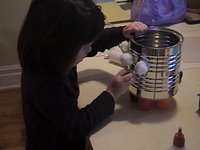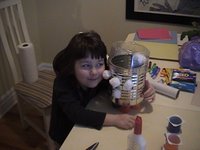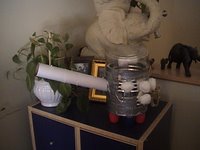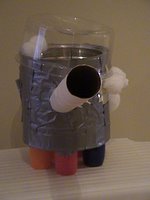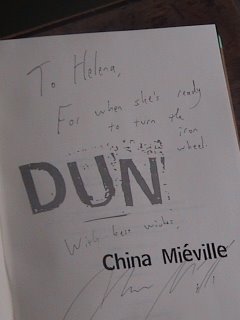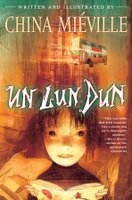res·o·nancen.
1. The quality or condition of being resonant:
words that had resonance throughout his life.
2. Richness or significance, especially in evoking an association or strong emotion: "
It is home and family that give resonance . . . to life" George Gilder. "
Israel, gateway to Mecca, is of course a land of religious resonance and geopolitical significance" James Wolcott.
3.
Physics The increase in amplitude of oscillation of an electric or mechanical system exposed to a periodic force whose frequency is equal or very close to the natural undamped frequency of the system.
4.
Physics A subatomic particle lasting too short a time to be observed directly. The existence of such particles is usually inferred from a peak in the energy distribution of its decay products.
5.
Acoustics Intensification and prolongation of sound, especially of a musical tone, produced by sympathetic vibration.
6.
Linguistics Intensification of vocal tones during articulation, as by the air cavities of the mouth and nasal passages.
7.
Medicine The sound produced by diagnostic percussion of the normal chest.
8.
Chemistry The property of a compound having simultaneously the characteristics of two or more structural forms that differ only in the distribution of electrons. Such compounds are highly stable and cannot be properly represented by a single structural formula.
I'm reading something... important.
It happens occasionally that a book comes along. A book comes along at the right time in the right place. It seems to be happening more frequently these days. Maybe I'm reading better books. Maybe I've become a better reader. Maybe I'm simply paying better attention. Some books come with
personal baggage before I ever open them, an overwhelming sense of having a specific import to me as an individual (
Middlemarch); some books are a suitcase of global, historical significance, though the world may not know it yet and I can only guess (
Snow).
I'm reading Richard Powers'
The Gold Bug Variations and I am in love.
It feels important.
From the very first pages I knew I was reading something big. Every page resonates with me, on different levels, for sometimes trivial reasons, essential ones too. It's clear at this point (a couple hundred pages in) that it is important to me personally, but I sense that it's bigger than that.
"And I learn again, in my nerve endings, that information is never the same as knowledge."
"...when I still believed in the potential of democratically available facts..."
"Recognition, learning a thing by heart: life will be nothing after these go."
Even this insignificant scene:
Tooney Blake, dark, mid-height, a youthful forty, is at the piano doing a terrifyingly down-tempo version of "Let's Call the Whole Thing Off." Only he's missed the point of the song: "Potato, potato, tomato, tomato," all pronounced exactly the same.
It resonates, as I recall the very funniest Saturday Night Live bit, with Christopher Walken, that I've ever seen. (Why do I think it's so funny? It's hilarious, missing the point is.)
A coincidence: I turned on the radio last weekend and, for my benefit alone, there was Francis Collins, who headed the Human Genome Project,
in interview.
There is a message in this book for me.
Half of what I made out about the twenty-five-year-old scientist was pure projection. I began to feel I had not lived up to my own intellect, that I'd been born too late, had taken a wrong turn, had lost my own chance to turn up the edge of the real, discover something, something hard. This child scientist, desperate with ability, somehow reduced to full-scale adult withdrawal, night shift labor, by something not explained in the literature: here was my own irreversible missed hour.
[...]
But something else motivates the euphoric articles, something more than self-aggrandizement, more than the desire to cap the ancient monument and book passage to Stockholm, that freezing, pristine Valhalla. The compulsion to find the pattern of living translation — the way a simple, self-duplicating string of four letters inscribes an entire living being — is built into every infant who has ever learned a word, put a phrase together, discovered that phonemes might speak.
As the journal evidence accumulated, it sucked me into the craze of crosswords, pull of punch lines, addiction to anagrams, nudge of numerology, suspense of magic squares. I felt the fresh PhD's suspicion that beneath the congenital complexity of human affairs runs a generating formula so simple and elegant that redemption depended on uncovering it. Once lifting the veil and glimpsing the underlying plan, Ressler would never again surrender its attempted recovery. The desire surpassed that for food, sex, even bedtime stories, worth pursuing with convert's zeal, with the singleness of a monastic, a lost substance abuser, a true habitué: the siege of concealed meaning.
Then a reference to the Pythagoreans: "They say that things themselves are Numbers." I've always had a certain fondness for the Pythagoreans.
The search for a starting point begins to resemble that painful process of elimination from freshman year, spent in the university clinic, a knot across my abdomen from having to choose which million disciplines I would exclude myself from forever.
I feel my own knot tighten again.
I remember Mr Veenstra with the crazy accent, grade 9 science, who made you do push-ups if you broke the rules of the lab. He sent me to the principal's office when I refused my sentence, on principle, after I'd baited him, deliberately dawdling while leaving my safety goggles on my desk. I remember the frustration of skipping from chemistry to biology when I still felt gaps in my understanding, and I stayed after class to puzzle out the difference between molecules in animate and inanimate object. "That, Ms Kratynski," — his eyes were on fire, mine were all water — "is the $64,000 question."
On page 88 I find the joke I always used to make, that we need a map, ideally scaled 1:1, only to discover Lewis Carroll had cracked it before me.
Everything resonates.
Science is not about control. That is technology, another urge altogether. The pursuit of living pattern that possessed Ressler has nothing to do with this year's apotheosis of bioengineering. He once remarked that mistaking science for technology deprived the nonscientist of one of the greatest sources of awe, replacing it with diet as filling as Tantalus's fruit. I had only to hear the man talk for fifteen minutes to realize that science had no purpose. The purpose of science, if one must, was the purpose of being alive: not efficiency or mastery, but the revival of appropriate surprise.
There is awe on every page, reminding me of the awe I feel, on good days, in real life, regarding those two most awe-inspiring things: science and music. (There is love, too, but it a mechanism, not the message — the grammar through which all awe is known.) And when I close the book before closing my eyes at night, I am in awe of the pages I've just read.
I find my theory of everything in these pages: "Motion is not forward but concentric."
Ressler asks, "Can you look at a score and tell . . . simply by the pattern of notes, whether the composer has uncovered something correct?"
In the back of my mind hovers the question, is there a novel that is "something correct," mathematically necessary, or
obvious.
Coincidentally I'd been listening to
Glenn Gould's 1955
Goldberg Variations — the same recording referred to in the text. Maybe it was a subconscious preparation for immersion in this novel. I've been listening to it ever since. Nonstop for weeks now. It's breathtaking.
There is nothing to do except release side one, track one. He touches the needle down on the Goldberg aria. The first sound of the octave, the simplicity of unfolding triad initiates a process that will mutate his insides for life. The transparent tones, surprising his mind in precisely the right state of confusion and readiness, suggest a concealed message of immense importance. But he comes no closer to naming the finger-scrape across the keys. The pleasure of harmony — subtle, statistical sequence of expectation and release — he can as yet only dimly feel. But the first measure announces a plan of heartbreaking proportions. What he fails to learn from these notes tonight will lodge in his lungs until they stop pumping.
I need to know how it all ends.
"You've worked in a lab, you've scribbled in enough notebooks to know better. I tell you, the world in not modulations and desire. It is stuff, pure and simple."
